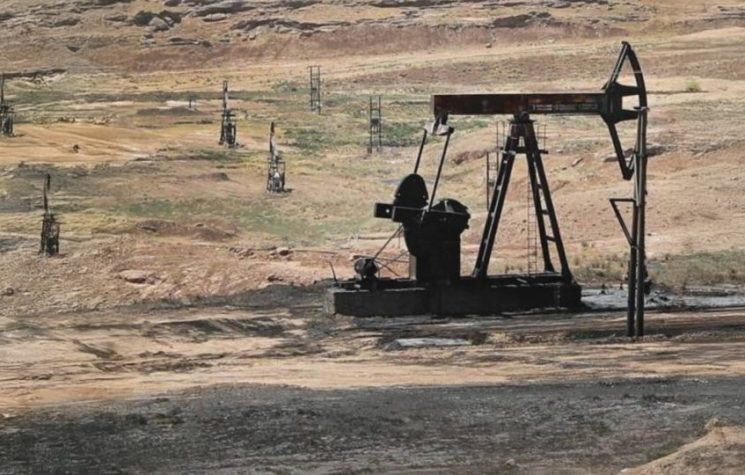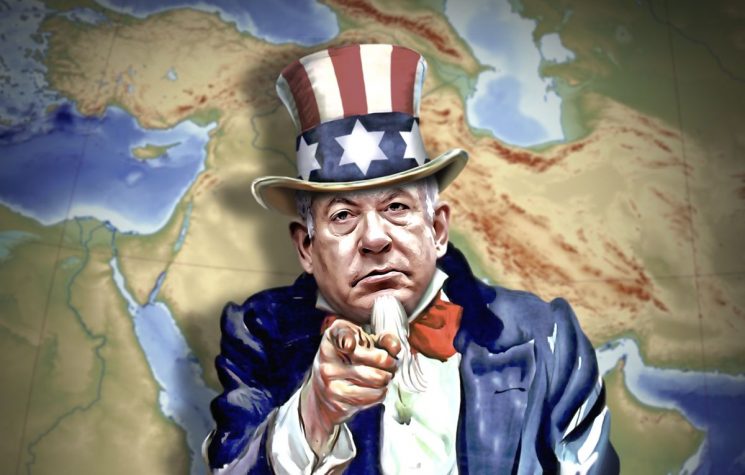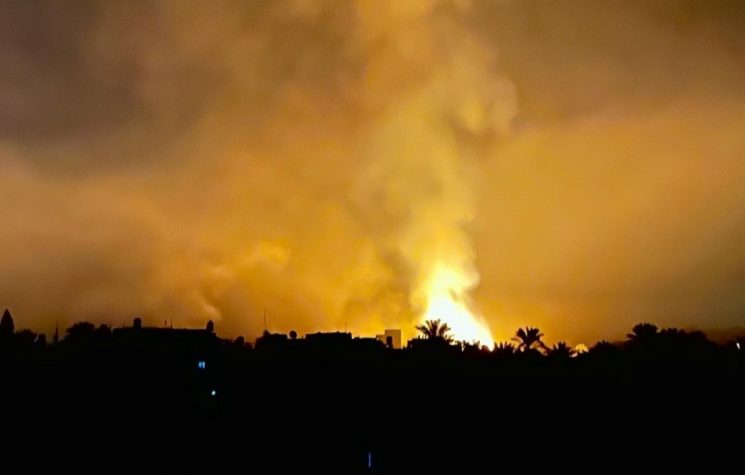A Palestine in Palestinian hands is diametrically opposed to the interests of Israel, the US, and Europe.
Join us on Telegram![]() , Twitter
, Twitter![]() , and VK
, and VK![]() .
.
Contact us: info@strategic-culture.su
In case the Italian crowd of last-minute runaways who are passionate about geopolitics because AI tells them so hadn’t noticed, the peace agreement went up in smoke in a matter of days, proving once again and irrefutably that USRAEL cannot be trusted, that there is no desire to make a real peace, and that the great experiment of media propaganda has worked, as always.
Let’s take it point by point.
First of all, the geopolitical data. When have the United States of America ever proposed real peace agreements? Historically, they have always limited themselves to fighting wars, emerging either victorious or defeated. A truce is not a victory or a resolution, and the 20-point peace agreement proposed with great media fanfare by the blond-haired man in Washington did not contemplate any effective balance for peace, let alone stability, and even less so for the interests of the Palestinians. The fact is that Israel immediately and repeatedly violated the agreement and resumed bombing. Is this surprising? No. Israel has been committing genocide for decades and has signed many agreements that it has always, and I emphasize always, broken. No diplomatic school teaches you to trust such an inconsistent partner.
Secondly, Trump. Did you really believe that the man who planned and then proposed — not vice versa! — the transformation of Gaza into a luxury mega-resort, calling it a ‘peace agreement’, the man who has supported the Greater Israel project from the outset, who has made agreements and kissed the hands of the world’s leading Zionists, who invented the Abraham Accords to secure control of the Middle East and its real estate and oil interests, who has continuously financed weapons for Israel, was really interested in peace?
The harsh reality is that a Palestine in Palestinian hands is diametrically opposed to the interests of Israel, the US, and Europe. Given this undeniable and well-known fact, it would be wise to start thinking in terms of geopolitical realism. The war will not stop until one of the parties involved is defeated, and these are the words of Israeli ministers, not opinions expressed in an analysis. Israel is willing to wait another century to carry out its plan.
The third factor to consider is the media victory of the West. The Palestinian question has been taken up and manipulated by the same globalist organizations of the collective West, becoming at times ridiculous in its methods and language. The emotional arousal over the genocide has been managed and channelled into social activities — certainly carried out with good intentions by the people — which have been useful in creating the groundwork for new policies of sanctions and restrictions on fundamental freedoms, legitimising the crackdown on demonstrations, on communication activities via social media and the press, and on support for causes ideologically judged as ‘dangerous’ by Western establishments.
If the support had been the result of genuine discernment and understanding of the Palestinian struggle, it would not have ended with the proclamation of a peace agreement, celebrated by all the media networks around the world, and today the streets would once again be full of people ready to further condemn the genocidal madness of the Zionist entity. The reality is that in the aftermath of the end of the war, the so-called movements for Palestine died down as quickly as they had been celebrated by the mainstream media. This should give us pause to reflect on the enormous capacity of Western powers to control the flow of information: what is allowed happens, and to the extent that it is manageable, while anything that truly risks violating the perimeter of national or international “security,” in that it goes against the established order of things, is simply not allowed.
The problem now is to understand what will happen next. Following the logic of infowarfare typically applied in the West, the resumption of attacks will be kept under wraps, preferring the narrative of a completed solution and obscuring attempts to bring the truth to light. The US and Israel want to push forward both the Abraham Accords project and the construction of the ‘new Palestine’, without taking into account, as already illustrated in various articles, the will of the Palestinians and their representatives — with the exception of the Palestinian Authority, which has been accommodating to the West since its creation and has not been involved in the recent conflict.
What is being passed off as a diplomatic victory serves as a passe-partout to revive US legitimacy in the Middle East, where both the petrodollar and political influence have been collapsing over the last ten years. Trump is aware of the need to hold on to the region with all his might, just as he is well aware of Israel’s desire to neutralize its great adversary, Iran, which is a thorn in America’s side.
In this sense, the narrative of the “Islamic threat” in Europe will be pushed further, so as to position politicians in an anti-Islamic or at least resistant stance. Let us not forget that Europe is irrevocably involved in Israel’s IMEC project, the Cotton Road, which passes through Palestinian ports, so it has no chance of escaping this political operation, and various countries, especially in the center of the continent, will renew the alarm about the terrorist threat.
Iran’s influence on the Islamic world in general, and the existing Islamic alliances themselves, will once again have to contend with the delicate political balance in the countries of the Islamic diaspora and with the arduous task of inculturation, which will be hindered. In Tehran, there is the possibility of a major operation to refute and dismantle American propaganda, but this card can only be played in certain situations and with extreme precision, otherwise the effect will be exactly the opposite and the Islamic East will once again be perceived as a potential enemy, constantly waiting for tragic events to unfold.
Russia and China will play an even more important role. They have both the role of balancing against the US, as enemy powers, and the role of silent operators in the region. The image of disintegration on the political line for Palestine has been useful in sifting through alliances and public opinion, but now it may become necessary to take clearer positions and intervene in the scenario.
Meanwhile, in Gaza, the Palestinians are watching the world.



































